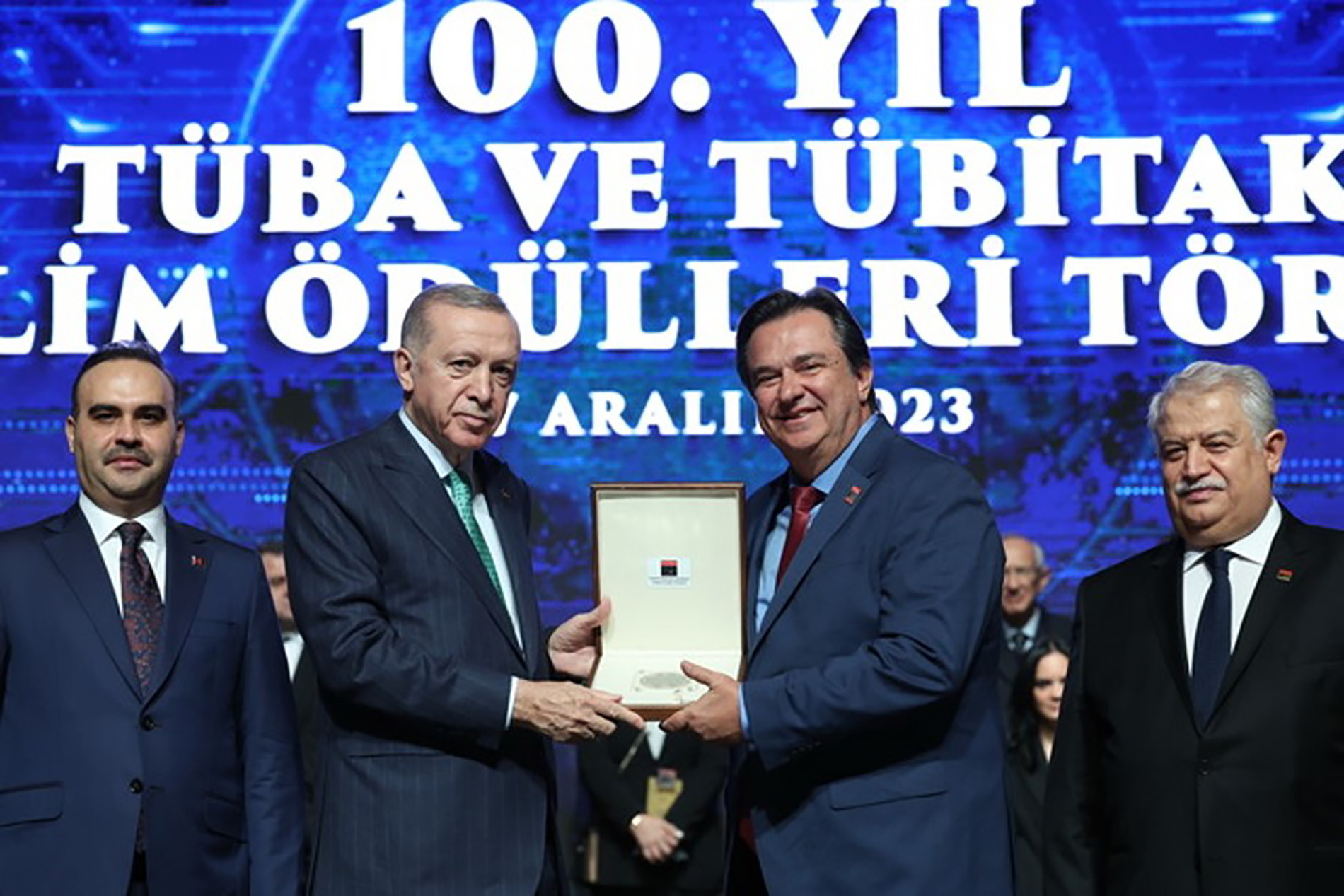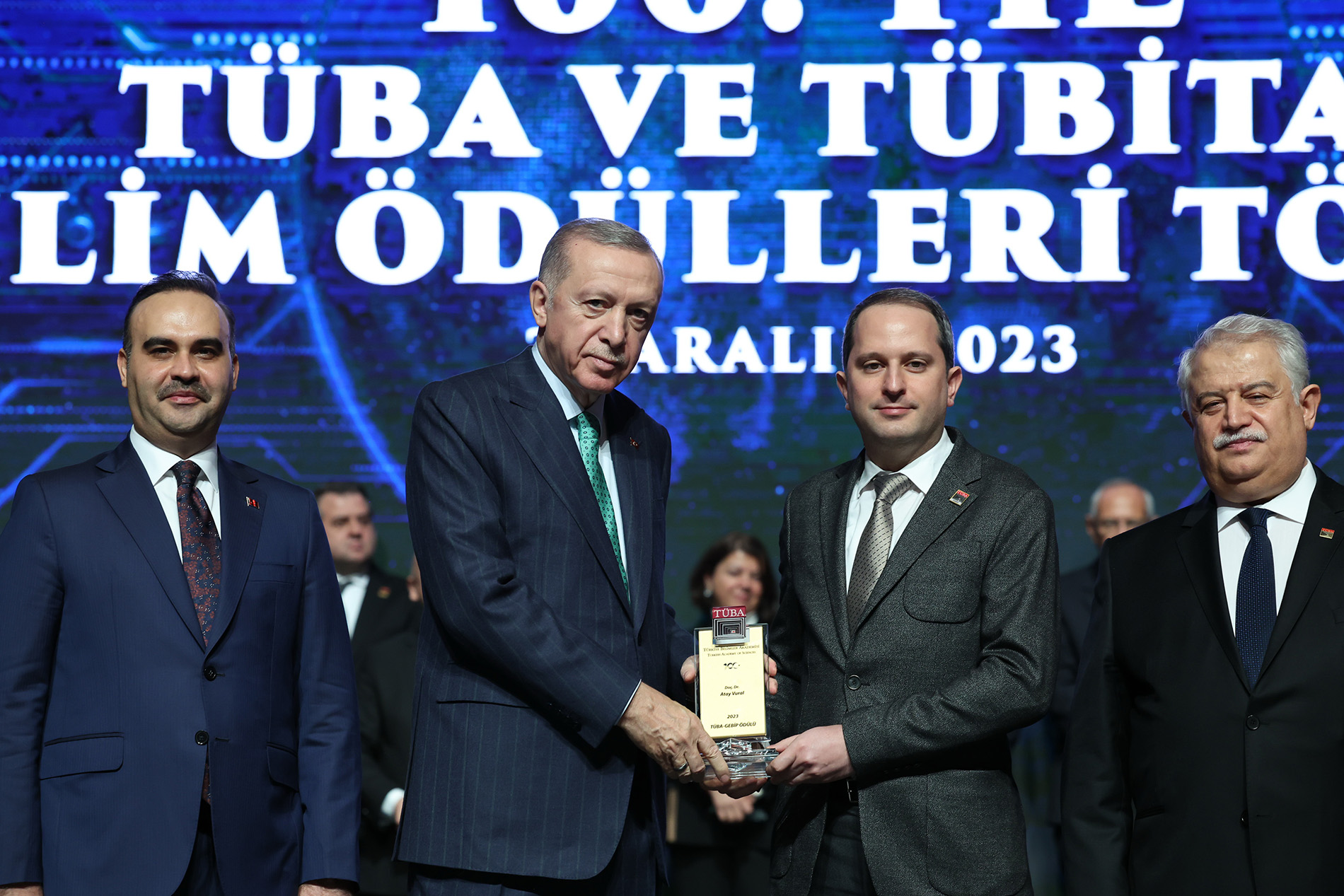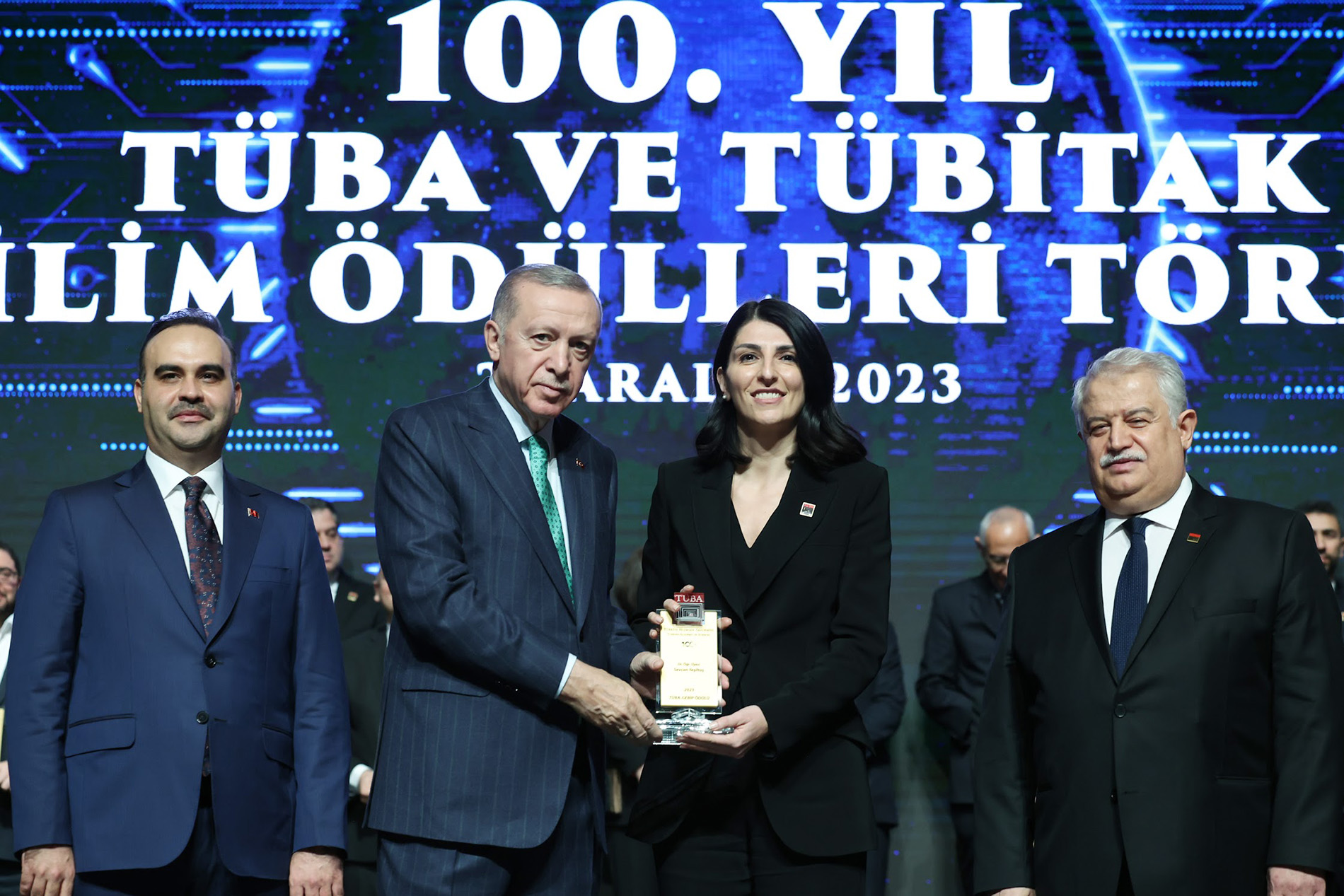TÜBA Awards
Three of Koç University’s faculty members were honoured with the 2023 TÜBA Awards. Professor Caner Süsal, School of Medicine, received the 2023 TÜBA International Academy Award, and Assoc. Prof. Atay Vural, School of Medicine, and Asst. Prof. Sevcan Yeşiltaş, College Administrative Sciences and Economics, were awarded the 2023 TÜBA Young Scientist Award (GEBIP).
Koç University ranks first in Turkey with 79 faculty members who have been awarded the TÜBA-GEBİP Award since its inception in 2001.

Prof. Caner Süsal
The research interests of Koç University Transplant Immunology Research Center of Excellence TIREX Director Prof. Caner Süsal, who received many scientific awards and held several leadership positions in the fields of organ transplantation and transplantation immunology, cover all aspects of organ transplantation and transplantation immunology, including transplantation of highly immunized patients, transplantation of organs from expanded criteria donors, induction of unresponsiveness to allografts, pre- and post-transplant risk estimation, matching of organ donor/recipient pairs at epitope level, and identification of biomarkers that reflect the balance between the effector and regulatory components of the alloimmune response.
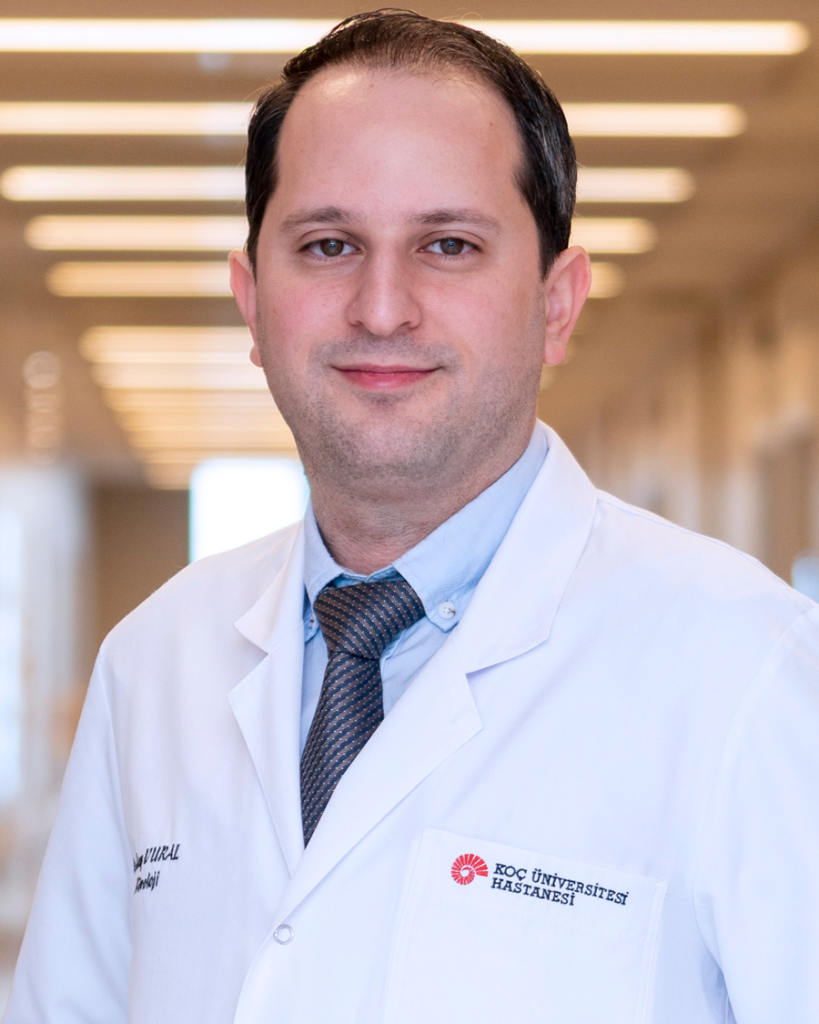
Assoc. Prof. Atay Vural
The focus of Assoc. Prof. Atay Vural’s research is on autoimmune neurological diseases and multiple sclerosis. He studies the immunological basis of these disorders and searches for novel biomarkers by using samples obtained from volunteers as well as experimental models. In addition, he has several projects on rare neurogenetic diseases and especially ataxias.
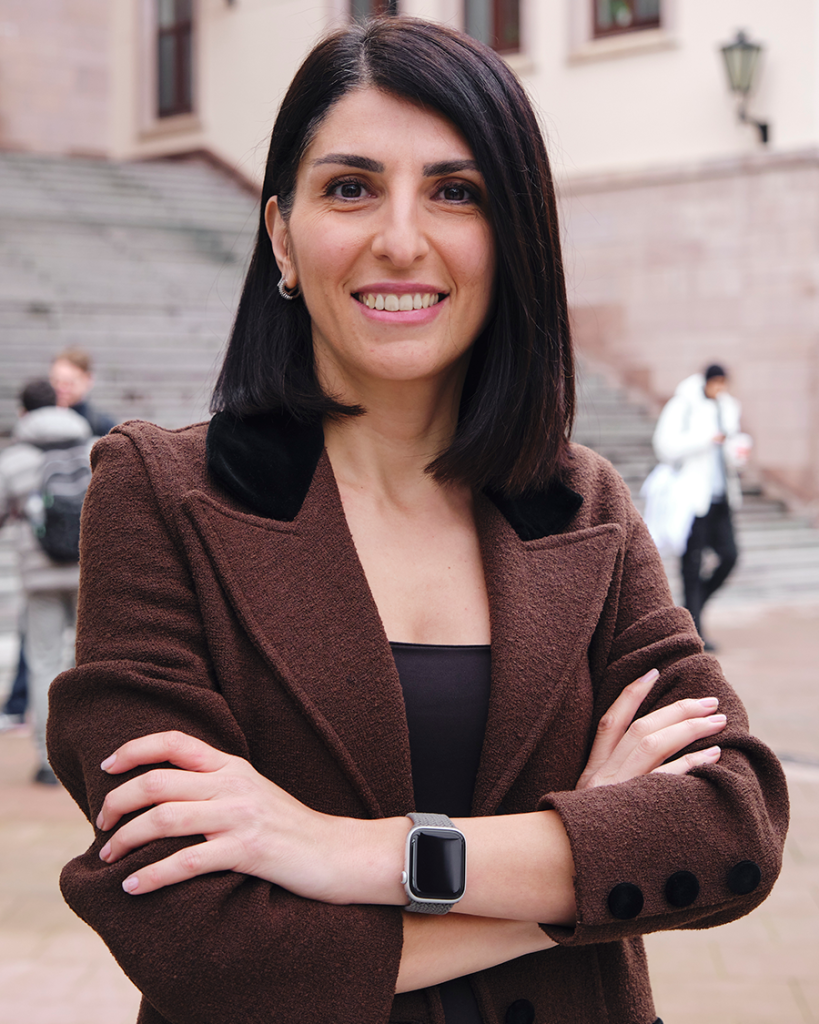
Asst. Prof. Sevcan Yeşiltaş
Asst. Prof. Sevcan Yeşiltaş continues her research in the fields of applied macro-finance, international finance, and corporate finance. In her studies, she aims to measure the effects of the linkages between the real sector and financial markets on the aggregate economy by developing micro-data-driven econometric analyses and structural models as well as to provide policy implications based on the findings of her research.








